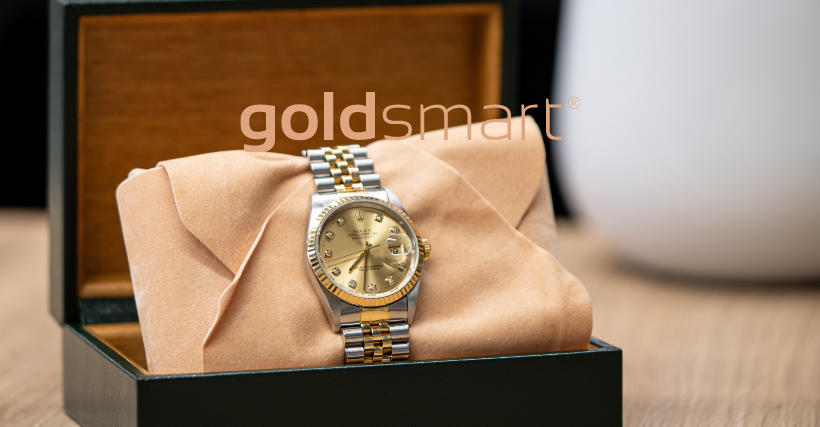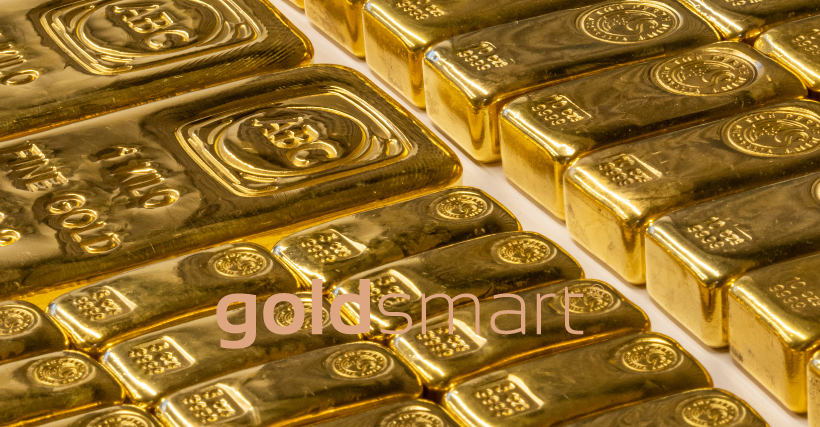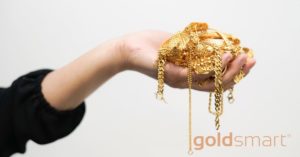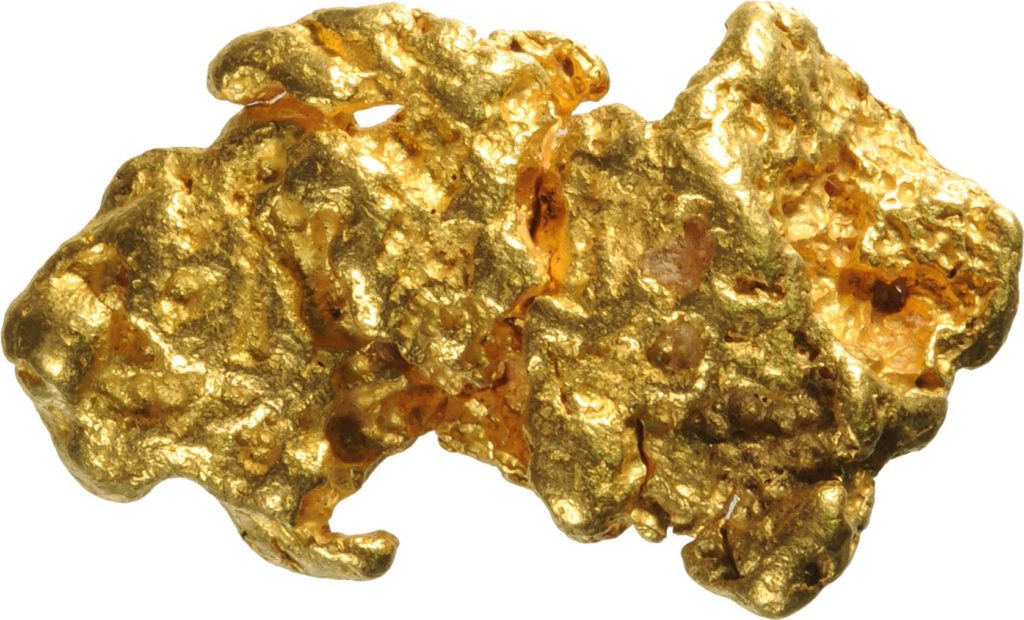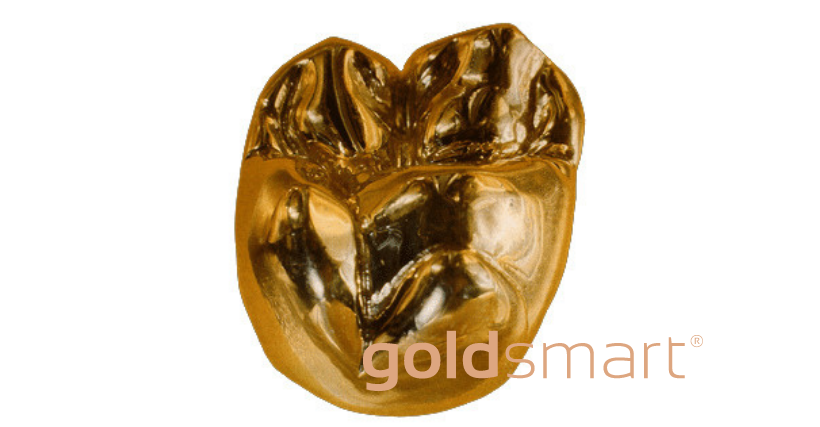Should You Sell Your Gold to A Pawn Shop?
If you want to sell some gold to put a little more cash in your pocket or bank account, you have numerous choices of where to go. Often a pawn shop will include gold buying as one of the services offered. To help you decide of a pawn shop is the place to sell your gold, here are three top reasons to use this type of gold buyer.
Reason 1:
The pawn shop needs your business so it can cover the high rents of keeping a storefront or kiosk in the shopping centre. The convenience of the shopping centre should be more important to you than getting the best price for your gold.
Reason 2:
You like showing your gold pieces in public where everyone around can see what you have and what you are selling. You really do not want to conduct this type of business in the private office of a professional gold buyer.
Reason 3:
You understand that pawn shops do not really take advantage of people when they are at their most vulnerable. Pawn shops are closer to charitable organizations and do not try to maximize their profits on the troubles of others.
Better Option to Sell Gold
OK, maybe these are not good reasons or entirely accurate reasons to do business with pawn shops as gold buyers. It is very possible you would be better served by a gold buyer where buying gold is the only business and the company works to keep down expenses, give the best prices, and provides a location that allows you to conduct business in safety and privacy. Taking a little more time to work with professionals always produces a better result.
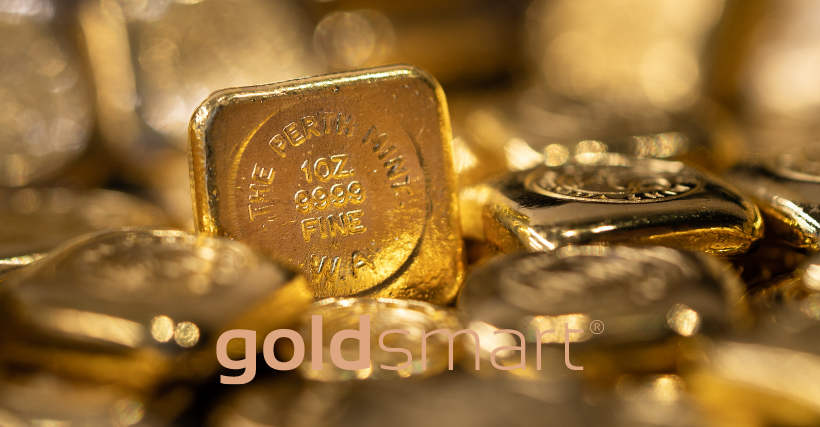
If you are like most people, you have shelled out hard-earned money for your gold. Perhaps you safeguarded your gold for years on end, hoping to eventually make a tidy profit. When the time comes to sell your gold, do not accept anything less than a fair offer. Though getting the most out of your gold will take some research and effort, it will be well worth it in the end. Follow the advice set forth below and you will greatly increase the odds of a profitable sale.
Perform a Comprehensive Inventory of Your Jewellery and Silverware Collection
Gather all of the jewellery you would like to sell and set it on a table. Inspect each item for precious metals like gold, silver, and platinum. There is a good chance that your jewellery will have at least a small amount of one of these precious metals. Collect all of the silverware you no longer desire as well.
If your jewellery is broken, disfigured, or discoloured, don’t fret. As long as it contains precious metals, it has some value. Even pins, brooches, and pendants might contain silver or gold that scores you a nice wad of cash. Such “scrap” can be worth a pretty penny if you have enough of it or particularly rare pieces.
Read up on Karat Value
Gold is priced by karats. This precious metal is available in an array of alloys. The purest alloy is referred to as 24 karat gold or “24-k” for short. When someone mentions 14k, 18k, and beyond, it is a reference to parts of 24. As an example, 14k means 14/24ths of an item is gold. Continuing onward, 14 divided by 24 equals 0.583 or 58.3 percent of gold. Every gold seller should be aware that the purest gold is incredibly soft so the majority of jewellery is designed with a lesser karat weight.
A seller will be paid according to his item’s karat weight. It is prudent to take a look at the stamp on the interior of your jewellery to find out this weight. If there is no such stamp, don’t panic. One of our experienced precious metal buyers will test your item to determine its gold or silver content. So come on into our Auckland office and meet with our gold aficionados in person. We will provide an honest assessment of your jewellery and address any questions or concerns you have.
Only do Business with a Respected Gold Buyer
Reputable gold buyers like Gold Smart have physical offices in Auckland where you can meet with our friendly personnel. Our exemplary in-person customer service is a stark contrast to other gold outfits. As the web has expanded, more and more precious metal buyers have set up shady websites without any sort of physical location. This is a major red flag for anyone who is interested in selling gold or other precious metals. Do not ship out your gold or other valuables to an online business. There are plenty of scam artists out there who will set up phony websites to sucker unsuspecting people into shipping off their gold in anticipation of a subsequent payment that never actually materializes.
When in doubt, only do business with gold buyers like Gold Smart who have a brick and mortar facility. Always check out the reviews posted on the web as well as each business’s Better Business Bureau report. Take a look at Gold Smart’s reviews and you will find that we are the best place to buy gold and sell gold in New Zealand. Also, do not pay a prospective gold buyer to check or test your items. Such tests should always be performed at no cost to the seller.
Have Your Gold Appraised
Attempting to sell your gold without a recent analysis of its value is a grave mistake. The value of gold fluctuates as time progresses. The appraisal you obtained for your gold items a couple of years ago will no longer be accurate. Bring your gold and other precious metals into Gold Smart and our team will test it right away. If the piece does not have a stamp, it will likely be necessary to make a diminutive scratch so a test can be performed with a lightly acidic solution that turns colours. These colours identify the gold’s karat weight.
Our team might also utilize a unique magnet and/or electrical scanner pen that gauges whether the item is actually a legitimate precious metal or diamond. This process is quite entertaining to observe. Our professional dealer will perform the test(s) in plain view so you don’t have to worry about him mishandling your valuables.
Furthermore, you should have all antique items, collector’s items and brand name pieces appraised through a licensed appraiser. His appraisal will provide you with the official market of each piece so you can get an idea as to their true value. You just might find that the melted value is greater than the sale value or vice versa. One caveat to keep in mind: Do not pay an appraiser a percentage of your piece’s value. Charging such a fee is egregiously unethical. There should always be a pre-established fee for each piece that is to be appraised.
Don’t Forget Your Identification!
The vast majority of gold buyers will refuse to purchase gold or other precious metals if you lack proper identification. The logic for such a refusal is that the items could be stolen from the rightful owner and brought in for a quick “flip”. Gold buyers worth their salt will confirm that the seller is actually the owner of the items for sale and record his personal information in case it turns out that the items have been pilfered from another party.
If you stumble upon a gold buyer who fails to take such precautions, you have likely encountered an illegal operation. Such a shady enterprise probably won’t give you a fair price for your gold. Move on to a trustworthy business like Gold Smart and you won’t have to concern yourself with such shenanigans.
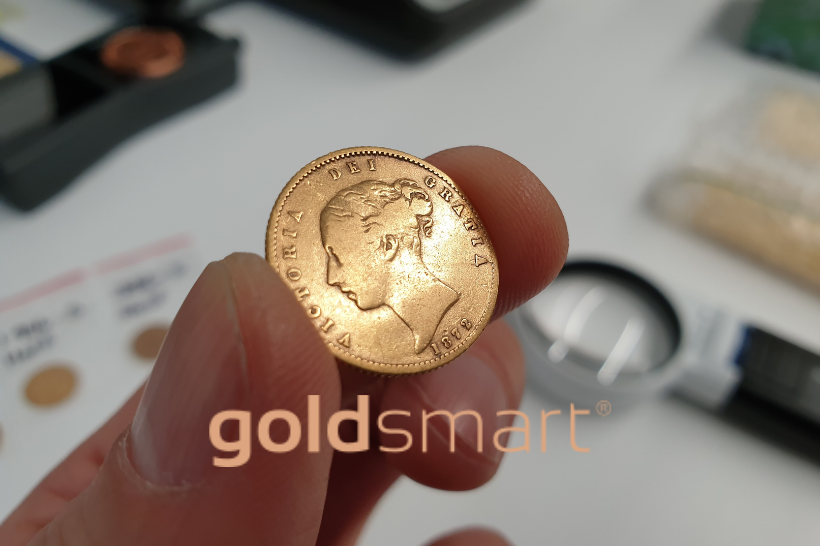
Check Your Gold Sovereign Collection
If you own gold sovereigns, you might be tempted to sell them for good reason. Though these coins are quite beautiful, they are also worth decent money. Gold sovereigns have a nominal value of a single pound sterling throughout the United Kingdom. Gold sovereigns are currently relied upon as bullion coins and are also used for jewellery.
If you are looking to make some quick money, don’t let those old gold sovereigns collect dust in a storage compartment in your closet. This is especially true for owners of the more valuable sovereigns. In particular, the British Edward VIII sovereign is worth quite the tidy sum of money. These coins are available in very limited quantities as production was shut off once Edward VIII relinquished his position on the throne.
If your family has held onto gold sovereigns for decades or longer, it is worth taking a look at your collection just in case you happen to have one of these ultra-rare pieces. A British Edward VIII sold a few years ago for over £500,000. Even if you don’t have a highly-coveted gold sovereign, you can still sell your sovereigns to Gold Smart for good money.
Gold Sovereign History
Gold sovereign minting was in full gear up until a government-issued shut down in 1604. Production later resumed in 1817. The Coin Act of 1816 dictated exactly how much gold could be used in gold sovereigns. About 113 grains of gold were permitted to be used in each gold sovereign. Gold sovereigns were minted according to this standard for the next century until being halted once again in 1817. Minting resumed in 1925, was halted yet again and production later resumed in 1957.
Gold sovereigns have been minted from this point on forward without interruption. Though gold sovereigns have been minted in countries like Australia, South Africa, and Canada, modern-day minting is strictly limited to the Llantrisant, Wales Royal Mint. The gold sovereigns produced at this mint are generated in a special precious metal space that is completely sealed off from the other portions of the facility.
Part of the British government’s motivation for resuming the production of gold sovereigns in 1957 was to combat counterfeiting operations in Italy and Syria. There was also concern that the coin would lose its reputation unless minting resumed. Many still used gold sovereigns to make payments at this point in history.
It was quite common to rely on these coins as a form of payment for services provided by the government. It is worth noting that the date on these coins is a reference to the year its die was created. This means the date on your gold sovereigns is not an accurate indication of the year in which it was struck. The Mint has also been known to strike these coins with a previous year’s date or even with the date of the upcoming year.
Aside from regular gold sovereigns, half sovereigns were also been struck for circulation purposes. Though two-pound double sovereigns, five-pound quintuple sovereigns, and ten-shilling half sovereigns were also struck, they were never dispersed into circulation. The sovereign series received a new coin in 2009 when The Royal Mint issued a quarter-sovereign piece.
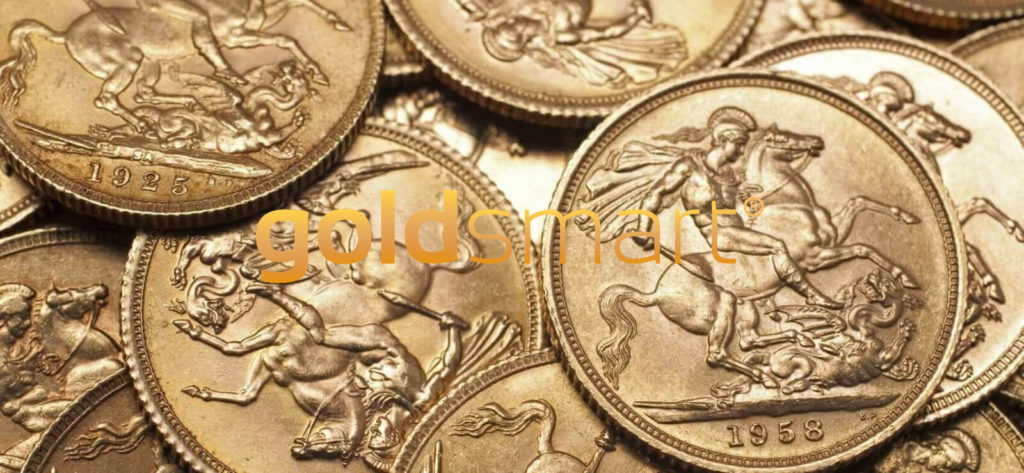
Gold Sovereign Nuances
Gold sovereigns weigh 7.988052 grams. They have a girth of 1.52 mm, a diameter of 22.05 mm, and a 22-carat fineness. Gold sovereigns’ Crown gold alloy (1/12 copper and 11/12 gold) is exactly the same as that used in the initial sovereigns produced in 1817. Alloy is relied upon to provide these gold coins with the rigidity required to guard against denting and scratching that occurs amidst their handling. The gold content of these coins is exactly 7.322381 grams.
In terms of design, the gold sovereign initially featured a shield, a crown, and a heraldic wreath. The design later shifted to a Benedetto Pistrucci rendering of Saint George slaying a dragon. This portrayal is still displayed on British gold sovereigns. However, additional designs were displayed on the coins during the ruling periods of Queen Elizabeth II, King William IV, and several other monarchs.
It is also interesting to note that gold sovereigns typically have a high premium to the value of gold compared to many other bullion coins. There are several reasons why this high premium exists. Firstly, the unit cost of the Sovereign is higher than gold bullion coins like the Krugerrand. Each gold sovereign has a unit cost of less than one-quarter of an ounce. There is also a strong demand for gold sovereigns amongst coin collectors. Add in the costs involved with pinpointing and maintaining such a numismatic coin and it is easy to see why the gold sovereign has such a premium.
Gold Smart Wants Your Gold Sovereigns
If you own gold sovereigns or gold of any other sort, we would like to make you a fair offer. Even if you don’t have a British Edward VIII gold sovereign, we are still interested in your collection! Gold Smart is also interested in your silver, platinum, and other precious metals. You won’t find prices better than ours. Reach out to us today for a free quote.
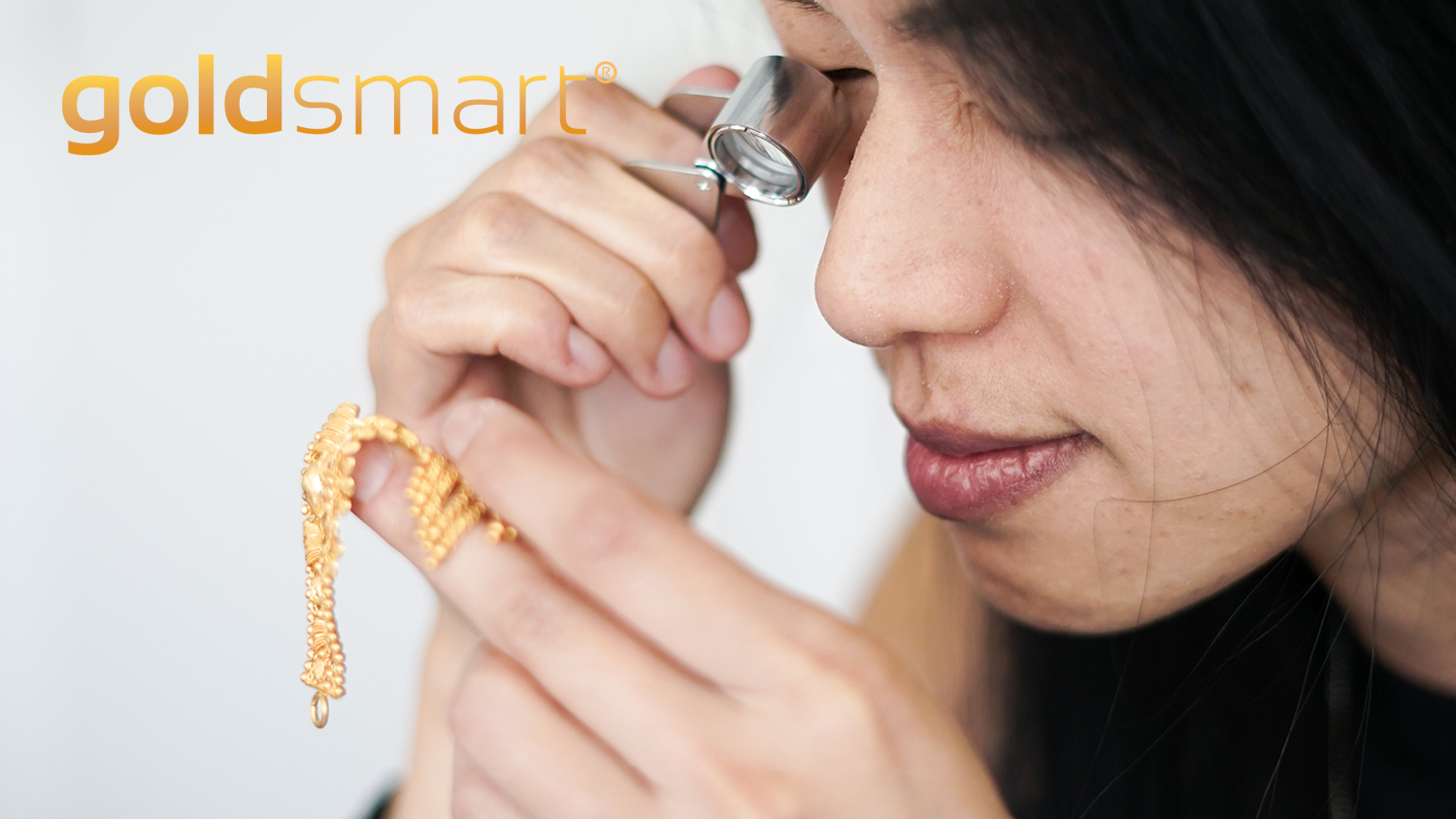
If you are considering selling your jewellery, don’t take the first offer from the first buyer you visit. Doing business with any old jewellery buyer is a surefire way to get ripped off. The unfortunate truth is that some unscrupulous jewellery merchants exist and they prey on uninformed sellers. Do your homework and you will be able to identify a jewellery buyer who is worth your trust and respect. Let’s take a look at exactly what you should look for in a jewellery merchant.
1. Consider the Jewellery Buyer’s Background
There are plenty of swindlers out there who really have no idea how to properly examine jewellery. Do not do business with a jewellery buyer who seems like he is exaggerating his knowledge base or speaking with a phony air about him. The best jewellery buyers have extensive knowledge, refined expertise and significant training in this field. True experts can determine the value of jewellery with remarkable accuracy in less than half an hour.
Find out if a prospective jewellery buyer is a certified jewellery appraiser before giving him the opportunity to appraise your piece. If he lacks this credential, walk right out the door and don’t look back! Furthermore, gauge the merit of the business’s team members to determine if they are serious about providing an accurate analysis and a fair price. If you have any suspicion about the dealer’s legitimacy, move on to the next candidate without hesitation.
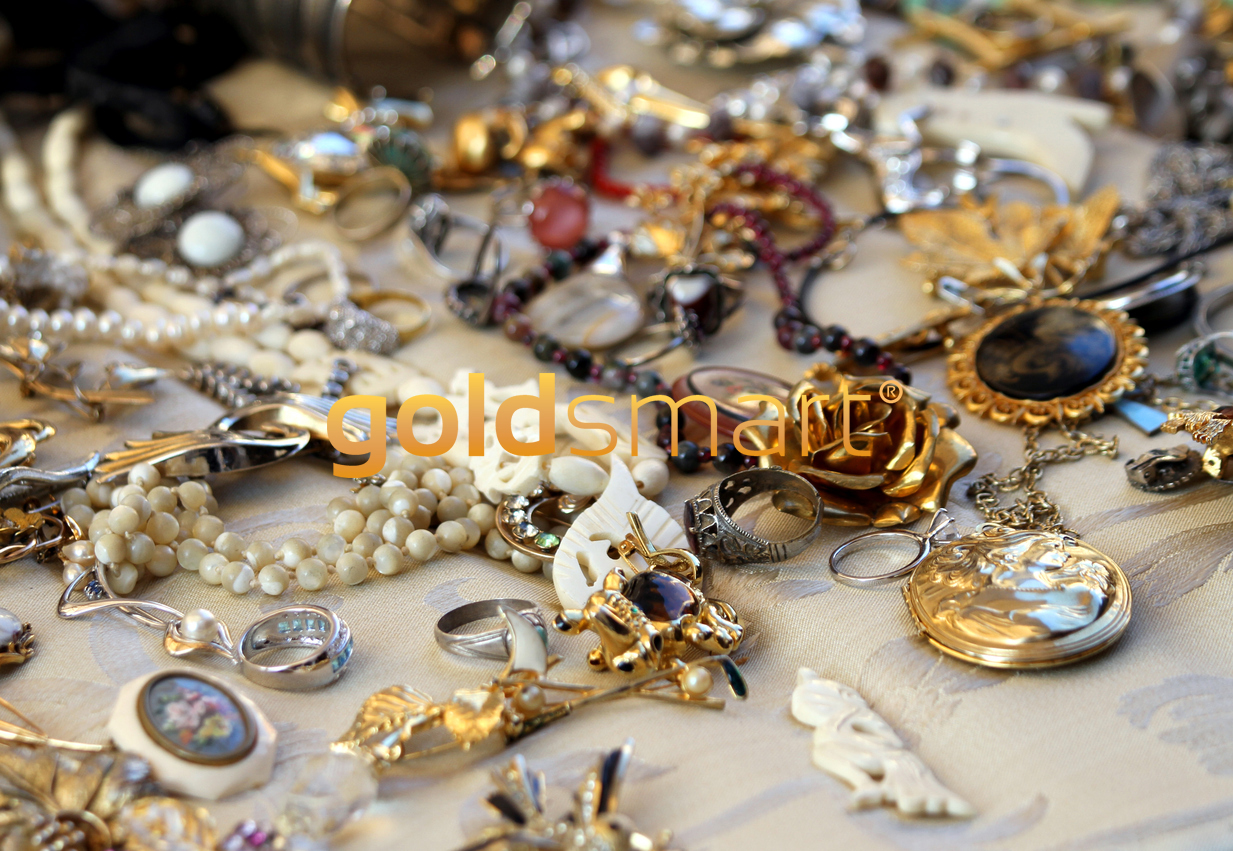
2. Reputation Matters
A jewellery buyer’s history in terms of customer experiences and the amount of time the business has been in operation is of the utmost importance. If the jewellery merchant opened the business in the past couple weeks or months, you won’t be able to gauge whether he has a solid reputation within the community. Take a look at online reviews for jewellery buyers who have been in business for a while. Ask around town to get a sense as to whether the jeweller you are considering is fair and honest. If you find that the jewellery buyer in question has a number of complaints regarding his pricing, knowledge and/or customer service, keep looking until you find a merchant who has excellent standing within the community.
3. A Straightforward Appraisal Process
The appraisal process should be transparent in every regard. If the jewellery buyer refuses to let you observe the appraisal of your piece, head on out the door. Do not let your piece out of your sight. If you let a shady jewellery buyer appraise your jewellery in another room that you can’t see, he might try to replace it with a similar looking piece that is worth significantly less money. You deserve to observe and understand every aspect of the appraisal process from start to finish. If the merchant won’t explain why your piece is worth what he quotes, don’t give him your business.
4. A Respectable Quote
Though jewellery buyers often roll out low-ball quotes to make a profit on a transaction, you still deserve a fair price. Sure, the merchant should have a little bit of room for profit in the deal yet he should not roll out a pitifully low quote. Do not hesitate to obtain multiple quotes and take a look on the web to see what similar pieces of jewellery are bought/sold for. Be sure to do this research before bringing your jewellery in for a quote so you have an idea as to what sort of price range you are willing to accept for your piece.
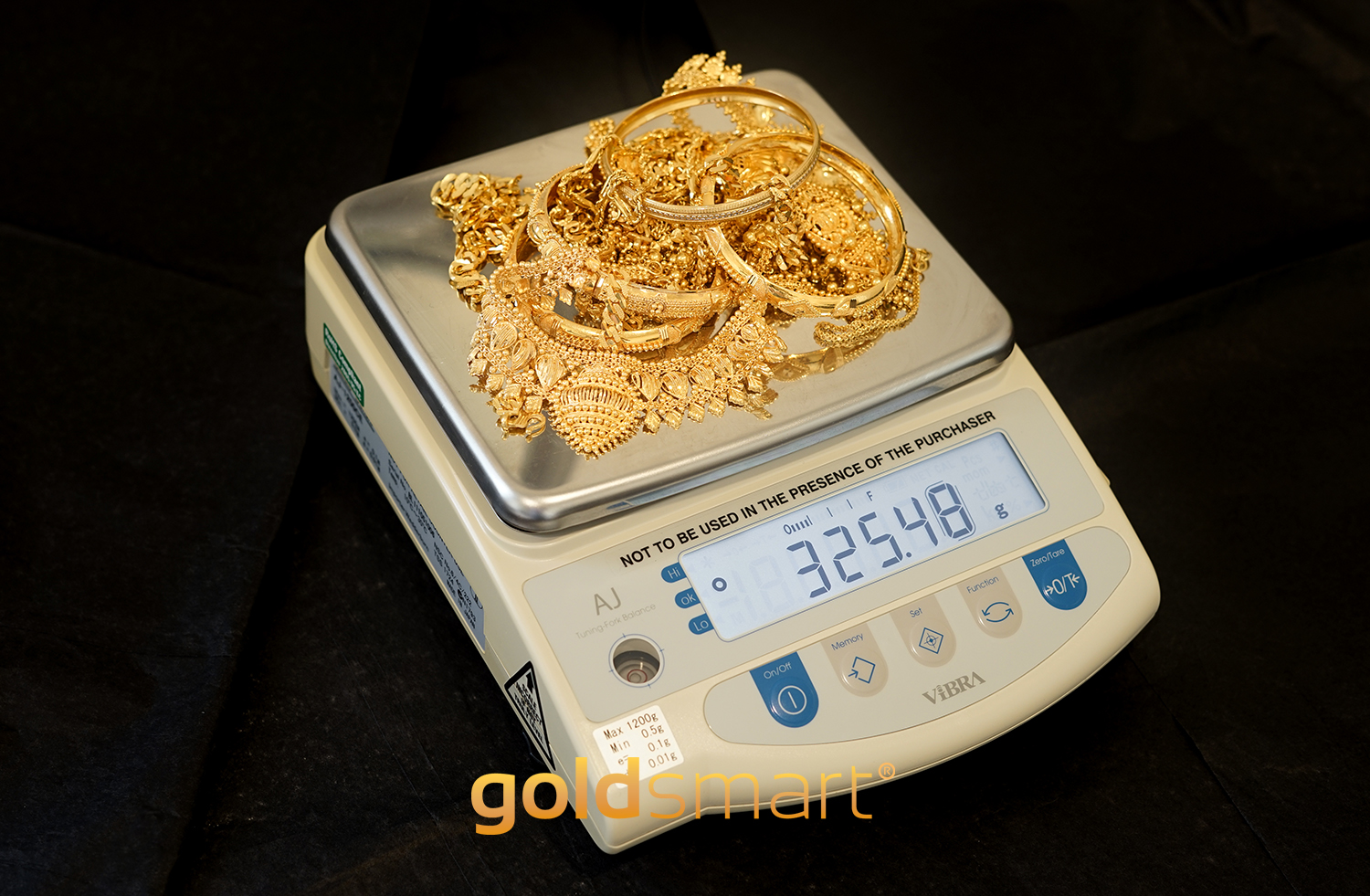
5. The Tools to Get the Job Done
If the prospective buyer does not have a modern facility with top-notch tools and equipment, he might not be worth your trust. The latest technology is needed to accurately assess the worth of jewellery. If the merchant’s gemological lab is outdated or in poor condition, move on to a different buyer.
Gold Smart is Worthy of Your Respect and Your Business
Our jewellery buyers go to great lengths to meet the standards described above. Ask around and you will find our gold buyers are honest and fair. If you are interested in selling gold, gold jewellery, platinum or silver, reach out to us for a quote.
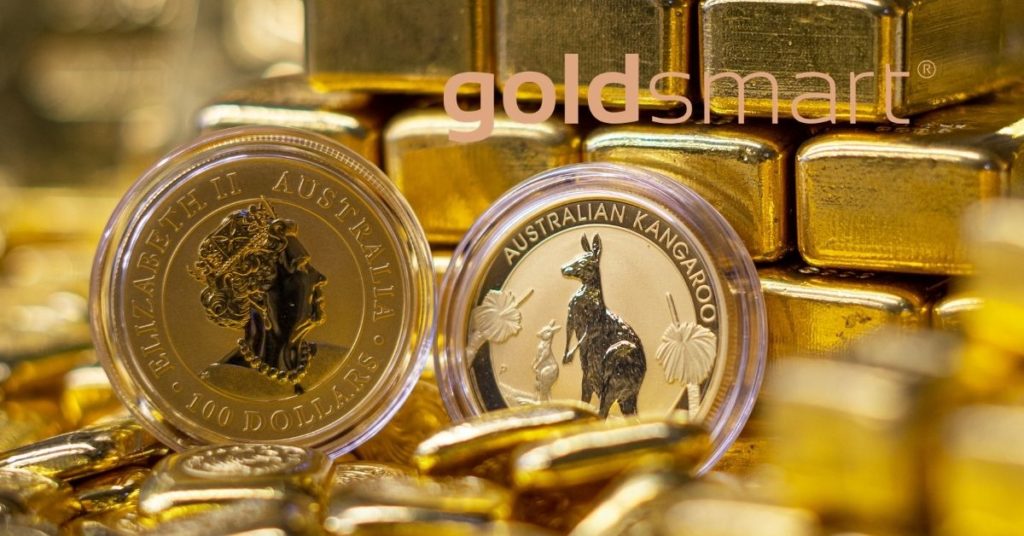
If you have Perth Mint Bullion in the form of bars or coins and are considering selling, your first choice of buyers should be Gold Smart. We are interested in Perth Mint pieces as well as gold, silver, and platinum pieces of just about every other variety. We have extremely fair prices, legions of satisfied customers, and the best customer service in all of New Zealand.
Maximum Return for Your Bullion
You deserve good money for your Perth Mint Bullion. All Perth Mint creations are of the highest quality. Look no further than Gold Smart for the best possible deal. We are the top choice amongst New Zealand gold sellers and buyers for good reason. Ask around and you will find that our customers receive solid offers for their gold. We are a family-owned business with minimal overhead. This empowers us to provide fantastic offers for Perth Mint gold. We don’t have any service charges, processing fees, or sales commissions that bring down the offer for your gold.
Bring your unwanted gold to our store and you will be pleasantly surprised by the amount of money we are willing to offer. If you manage to find a superior rate from a legitimate gold buyer, we will endeavour to match or better the offer as long as it does not extend beyond the current price of gold. All you have to do is provide us with the competitor’s offer in writing with a detailed description of the gold items you would like to sell. The description should include the purity tested and the exact weight in grams.
Straight Shooters With a Focus on the Customer Experience
Our gold buying team tries to consider what it is like to be a seller who wants to fetch good money for unwanted gold. We are completely honest and transparent about all transactions. Do business with Gold Smart and you won’t have to worry about hidden costs or any sort of manipulation that countless other precious metals merchants use to make money off of uneducated sellers.
You deserve an honest merchant who is looking to establish a long-term relationship. We are that merchant. Our gold buyers will tell you exactly why we value your Perth Mint Bullion at a specific figure and we will never talk down to you. If you have any questions about precious metals or the buying/selling process, do not hesitate to ask. Our team is more than willing to share in-depth knowledge about the industry with anyone who walks through our doors, calls us on the phone, or contacts us by e-mail.
A Comfortable Experience to Sell Perth Mint Gold
Our employees treat customers as if they are a part of our family. We provide a relaxed and informative buying/selling atmosphere that everyone can feel comfortable in. Bring in your Perth Mint Bullion or other precious metals, enjoy a friendly discussion with our staff and you will feel right at home. We keep all communication confidential. Our team is trained to safeguard customer personal information so you don’t have to worry about any of your contact information or transactions being publicized/stolen. This is the gold-selling experience of your dreams.
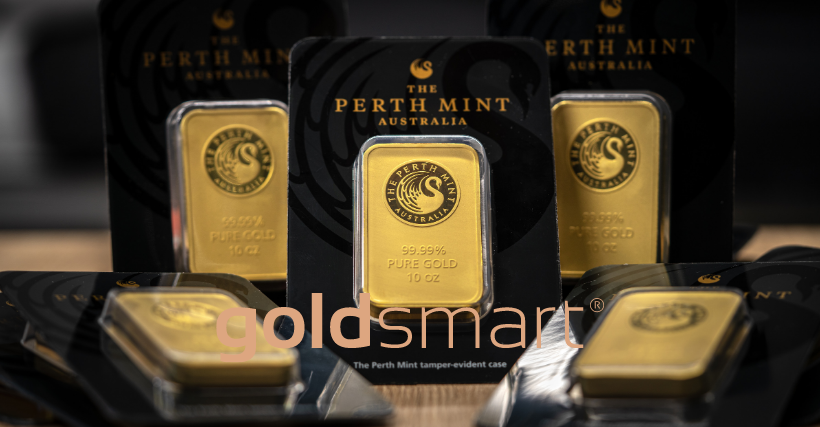
Flexible Options to Sell Perth Mint Bullion
Those who have Perth Mint Bullion or other gold can sell to Gold Smart in one of four ways. You can drop on in for an enjoyable in-person visit where we evaluate your items and provide a fair quote. Or, make use of our Gold Smart courier pack. We even have a VIP pick-up option at your specific home or work location. It is also possible to send your gold items with the tracked method of your preference.
A Sterling Reputation
We pride ourselves on serving all customers with a friendly attitude, respect, and fairness. Take a look at the Gold Smart reviews posted to the web and you will find overwhelmingly positive feedback. Ask customers about their experience with our business and you will undoubtedly hear all about our great prices in New Zealand and how we treat customers like family.
We are much more than licensed gold buyers. We are also a pillar of the community. Our mission is to please customers, keep our doors open, and establish long-lasting relationships that lead to additional business down the road. Contact us today to learn more about our interest in your Perth Mint Bullion, gold jewellery, gold coins, silver, and platinum.
Demystifying the Gold Colour
It is very common to hear expressions such as “this jewel is from this or that region” or “this jewel is from this origin” because of its colour.
Others can often say “Gold with this colour??? No, this is not gold!” or “18 carat gold from that place is better”. However this couldn’t be further from the truth. Gold is a metal, therefore it is the same anywhere in the world.
Pure gold is 24 carat. 75% of 24 equals 18. Thus, a piece of jewellery that has 75% of pure gold is 18 carat (750/1000). The other 25% corresponds to the metal alloy that is combined with the gold. The colour of the jewellery is defined by the selection and composition of these alloys.
Colours of Gold
Gold remains always pure, even when connected to other metals. To be turned into jewellery, for being soft, gold requires the addition of other metals. This union with other metals is called league, which is also responsible for the colour of gold. Depending on the percentage of each of the metals that make up the alloy, the colour of gold can vary:
- Gold + silver and copper = YELLOW GOLD
- Gold + nickel or silver and palladium = WHITE GOLD
- Gold + copper, silver and zinc = RED GOLD
18 Carat White Gold
Based on these facts 18-carat white gold would comprise 75% gold (Au) plus a mixture of palladium (Pd) and silver (Ag) or Nickel (Ni)
White gold is as valuable as the other colours. Usually, it is made with a mixture of nickel or silver and palladium, and for this reason, the final appearance is dull and grey. In order to add shine, it is necessary to go through a technical process of finishing, popularly known as “rhodium plating.” Basically, this process consists of immersing the jewel in a specific device which is placed another metal in solid state (usually platinum) that causes the rhodium in its liquid state to set in the jewellery. For this reason, it is common that after a long period of usage, white gold jewellery requires new rhodium plating, since the frequent use of the piece can wear off its shininess (but never the gold). Unlike plated gold, which has the noble metal only on the surface, white gold has gold as the main component.
For helpful advice on selling your jewellery, and friendly and professional service, call Gold Smart and book an appointment with us today.
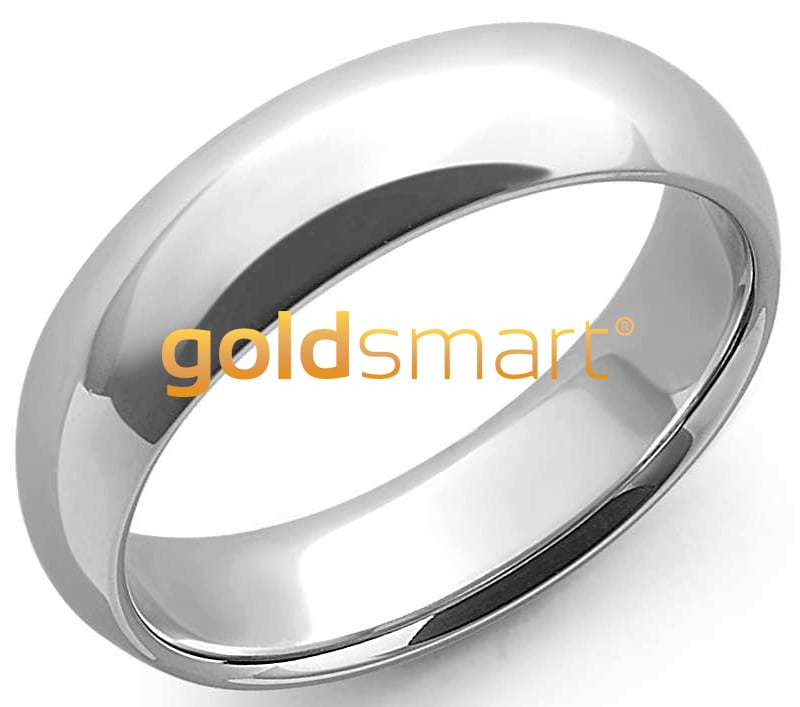
Most people know gold is valuable yet many are unaware that there are several different types of gold. Aside from regular yellow gold, rose gold and white gold also exist. Yet white gold does not have a glaringly white or beige hue. It is referred to as white gold partially due to the fact that it is a man-made metal.
A Look at White Gold
White gold is actually an alloy. This means it is a metal that does not naturally appear in nature. White gold alloy is man-made by combining a minimum of two metallic elements together to form a metal greater than the sum of its parts. The particular combination of metallic elements differs from the desires of the individual creating white gold alloy. Natural gold is commonly mixed with white metals like zinc, palladium, nickel, and copper to create white gold alloy.
Why the Creation of White Gold is Necessary
If one were to make jewellery and other pieces with pure gold, it would backfire as pure gold is quite fragile. A piece made of pure gold would eventually break or warp after months/years of handling, jostling, and general wear and tear. This is part of the reason why metallic elements are mixed with pure gold to create white gold alloy.
Metallic elements like palladium and platinum strengthen the gold and also serve to create a visual warmth that can’t be matched by other metals. In particular, the addition of nickel and copper make gold extremely durable. The presence of either of these metals also makes gold appear colder than it would when mixed with other metals like palladium. Zinc is also commonly added to gold alloys to even out its aesthetic.
An Explanation of White Gold Alloy’s Worth
Every type of gold, including white gold alloy, is measured in karats. A large number of karats means the gold has a high value. The highest karat level is 24 karats. This number of karats represents the utmost purity with 99.7 percent of its weight consisting of pure gold. The percentage of gold does not differ by the variety of metals used to create white gold. As noted above, these added metals certainly change white gold’s aesthetic.
The Basics of White Gold Jewellery
Just about every type of jewellery uses white gold alloy. All in all, white gold alloy is the second most popular version of gold used in the creation of jewellery. White gold alloy is used in everything from brooches to necklaces, rings, earrings, bracelets, and beyond. Since a growing number of people are allergic to nickel, fewer jewellery makers are using this metal for their pieces. Older pieces of jewellery are much more likely to contain nickel than newer ones. Yet nickel is still used in rings and pins due to the metal’s rugged character. Its addition makes these vulnerable pieces extremely rigid.
Gold buyers and those interested in selling white gold should be aware of the fact that each piece of white gold jewellery contains plating made of rhodium metal to make it look more gold-like. If this plating was not added, the metal would not appear white. The final hue hinges on the type of metal mixed with traditional gold. Rhodium plating provides a lovely white hue while the addition of other metals will create a pink, grey, or brown hue. The rhodium plating of white gold jewellery must be replated from time to time in order to maintain its beautiful colour. This replating is necessary as rhodium eventually wears away in the ensuing months and years.
It must be noted that there is a difference between rhodium plating and gold plating. The presence of gold plating indicates the piece is primarily made of a metal besides gold. The gold plating is implemented as a layer above this base metal. Do not hesitate to have your jewellery replated. This process will ensure that your piece looks as visually pleasing as possible. Replating is surprisingly cheap and simple.
Gold Smart New Zealand is at Your Service
If you are looking to sell your white gold alloy of any variety, Gold Smart is here to help. We offer fair prices, friendly customer service, and completely honest assessments. Our gold buyers New Zealand business is also interested in your scrap gold, silver, platinum, and palladium. Reach out to us today at 0800 465 376 to learn more.
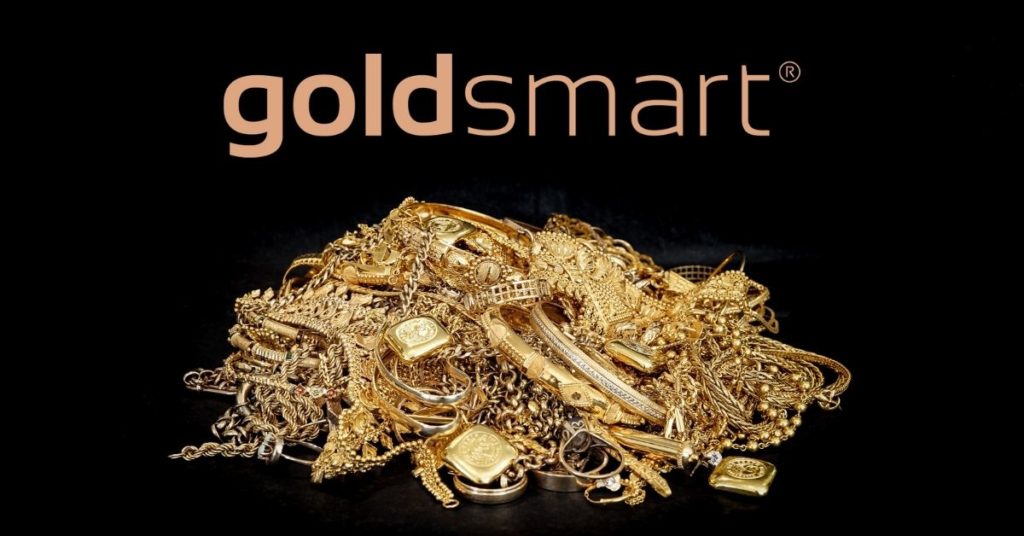 If you are like most people, you have some jewellery in your home or elsewhere that you no longer need or wear. No jewellery stands the test of time in terms of style. There is nothing wrong with moving on to new pieces of jewellery as fashion changes.
If you are like most people, you have some jewellery in your home or elsewhere that you no longer need or wear. No jewellery stands the test of time in terms of style. There is nothing wrong with moving on to new pieces of jewellery as fashion changes.
However, there is no sense in letting your jewellery rest idle when it can be put to good use. Trade your jewellery for cash or even bitcoin at our precious metals business and you will have the money you need to enjoy life. You just might have a nice little bundle of cash in your pocket after you turn in all that outdated, worn, and otherwise useless jewellery. This is your chance to enjoy a nice meal, a night out on the town with your significant other, or a vacation.
Get Bitcoin for Your Jewellery
There is no need to limit yourself to cash when turning in your old or damaged jewellery. Opt for bitcoin and you will enjoy immediate access to this convenient digital currency. You can use the bitcoin you obtain for your cash to buy everything from coffee and snacks to plane tickets, hotel accommodations, concert tickets and so much more. You can even hold your bitcoin and wait to see if it increases in value. The choice is yours.
What matters most is you are compensated for that old, ugly, broken, or otherwise undesirable jewellery. We are the sole precious metals and cryptocurrency dealer in all of New Zealand to provide bitcoin for jewellery. You will not find a similar offer elsewhere. Our flexibility and passion for high-tech innovation are central to our reputation as the most customer-friendly and comprehensive precious metals business in all of New Zealand.
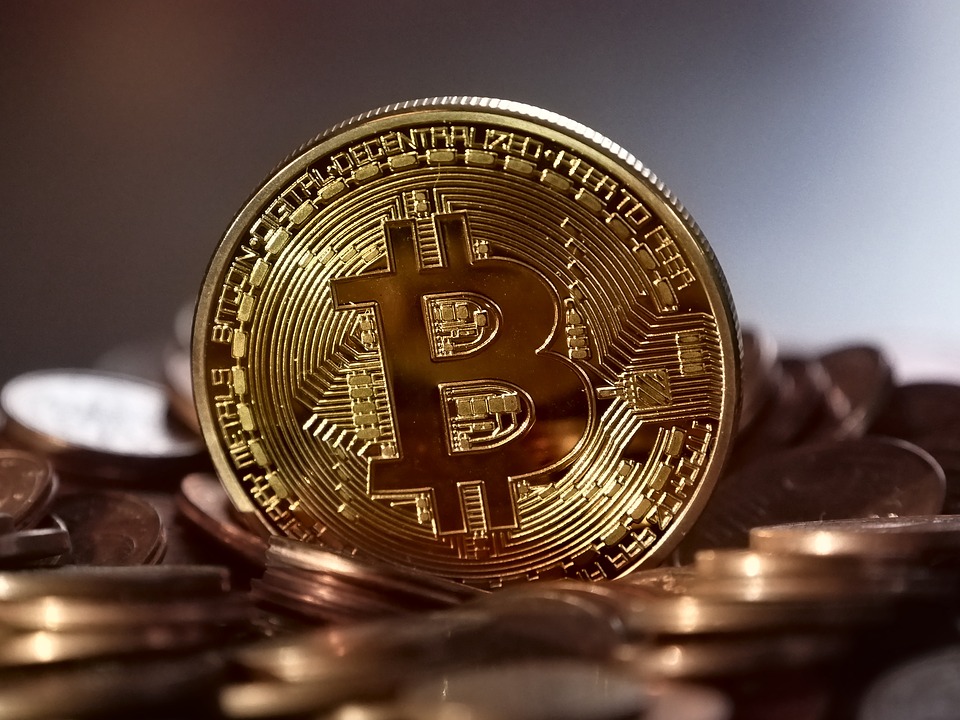 Sell Gold for Bitcoin or Cash Today
Sell Gold for Bitcoin or Cash Today
We make it easy to convert your gold jewellery or other gold pieces for the compensation of your choice. Choose between bitcoin, cash, or other gold pieces. We will provide you with fair value regardless of the type of jewellery or other gold you are selling. Each transaction is backed by our value guarantee. You will be pleasantly surprised by our team’s professionalism, friendly attitude, and competitive pricing.
You can meet with us in person at our office or send in your piece for analysis by way of a courier pack. If you mail in your item for appraisal, we will contact you as soon as it has been evaluated so you can decide to sell or hold. Opt to hold your piece and it will be sent right back to you without delay. We are especially proud of the fact that most customers decide to sell after receiving our quote. Payment is transferred promptly, so you lock in this competitive price and receive your funds as quickly as possible.
Gold Smart is Ready to Pay Bitcoin or Cash for Your Gold
You can obtain a quote by meeting with us in person at our office or by sending your piece in for analysis. Give us a call to schedule a time for your gold item(s) to be appraised. You can reach us by dialling 0800 465 376.
Want to Sell Gold Jewellery, Gold Bullion, and Gold Coins?
If you have any old gold or jewellery sitting around, you should consider selling it for cash today. There really has never been a better time to sell gold than right now – however, it’s important that you select the right gold buying company to avoid being ripped off. Many companies offer Cash for Gold (or “Cash4Gold”) buying services, yet Gold Smart customers tell us how they fall short of their expectations of fair prices, service, and knowledge.
The process for selling gold and silver jewellery in New Zealand is very simple – Gold Smart has created a new solution based on three things: the weight of the item, the carat of the gold, and the gold spot prices. The basis is our promise to provide a fast, friendly, and professional gold buying service. Giving you a fair and open process for selling gold, gold jewellery, and silver.
Types of Gold Bullion We Buy
At Gold Smart, we also purchase Gold and Silver Bullion – the common types of gold bullion that we buy includes:
- 1oz New Zealand Gold Kiwis (99.99% pure)
- 1oz Perth Mint Nuggets and Kangaroos (99.99% pure)
- 1oz South African Krugerrands (91.6% pure)
- British Sovereign Gold Coins (91.6% pure)
- Gold Cast Ingots (98.9%-99.99% pure)
The value of gold coins and gold bullion depends on the size of the coin (weight in grams), gold purity, who minted the gold coin, and the condition – is it worn, damaged, or “mint condition”.
When selling your gold you will need to make sure you don’t get ripped-off by the many “Sharks” out there. To get excellent prices for your gold you will need to talk with the trusted gold bullion buying experts – Gold Smart!
We buy gold bullion from sellers across New Zealand and offer excellent prices!
Sell Your Gold Bullion today!
Want to Sell Gold Nuggets?
Do you have gold nuggets that you no longer desire? Perhaps you need cash for home improvements, a new vehicle or a vacation. The solution is to sell gold nuggets to Gold Smart. You will receive a fair price and the transaction will be performed in a timely and professional manner. Selling gold nuggets can be a bit of a nerve-wracking process to those who have not sold precious metals in the past. There is absolutely nothing to fear. Let’s take a look at gold with a specific focus on gold nuggets and Gold Smart’s exemplary business practices.
The Basics of Gold Nuggets
Gold nuggets form naturally in various parts of the planet. Officially referred to as pieces of “native gold”, gold nuggets are obtained through placer mining. Yet they are also located amidst residual deposits in areas where gold-bearing lodes and/or veins have endured Mother Nature’s wrath. Some gold nuggets are even found within the tailings piles created by mining operations in the past. Gold nuggets are actually fragments that are weathered from lodes. Some show abrasive polishing due to exposure to streams while other nuggets feature quartz.
An Australian study performed in 2007 explored the nuances of the crystals within gold nuggets. The findings show that gold nuggets were actually formed at an extremely high temperature far below the depths of the planet’s surface. These nuggets are retrieved through mining operations that involve strenuous tunneling. Miners rely on heavy-duty machines known as “stamper batteries” to crush the rocks. The gold is then separated out with chemical cyanide. Alluvial gold is obtained from rocks that are worn down with gravel and sand across thousands of years. This gold is actually located within the gravel of river beds. Machines are often used to dig up this gold. Alternatively, the gold can be dredged, sluiced, or sifted out by hand with a pan.
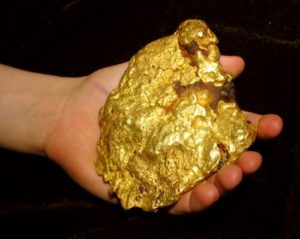
Gold Nugget Composition
In terms of composition, gold nuggets typically have between 83 percent and 92 percent purity. This equates to 20.5K and 22K purity. Gold nuggets from Australia tend to be 23K or higher while those from Alaska are toward the lower end of the purity spectrum. One can assess purity based on the nugget’s colour – those that have a deep and rich yellow/orange hue tend to have significantly higher amounts of gold. Prospective gold sellers and buyers should also be aware of nuggets’ “fineness”. As an example, “850 fine” refers to the nugget having 850 “parts” for each thousand in gold.
The largest gold nugget discovered on planet Earth was found in central Alaska’s Kuskokwim Mountains. It weighed 77 grams and measured 6.6 by 2.0 by 1.1 cm. Yet there are claims made in literary pieces that two extraordinarily large nuggets were discovered in 1869 by Richard Oates and John Deason. Known as “The Welcome Stranger” and “The Canaa Nugget”, these nuggets are allegedly quite massive. The Welcome Stranger was located at Moliagul, Victoria in Australia. It reportedly weighed in excess of 2,520 troy ounces. This equates to 173 pounds or 78 kg.
Why Is There Such a Demand for Gold?
The average person likely assumes that gold is valued for its aesthetics. Though this precious metal looks quite stunning when used in earrings, bracelets, necklaces, and other jewellery, it also has practical uses. Gold is used for a myriad of purposes, from coating space shuttles to oral health solutions.
A Brief History of New Zealand Gold
The first recorded instance of a gold discovery in New Zealand dates all the way back to 1852. A Tasmanian known as Charles Ring found gold at Driving Creek, an area just outside of the town of Coromandel. More gold discoveries were made around Marlborough and Golden Bay in the following years. Some of these discoveries led to massive gold rushes while others amounted to little. Otago is especially well known for its gold rushes. Otago’s initial gold rush occurred in 1861 in the aftermath of Gabriel Read’s gold discovery. The area where she found gold was later named Gabriel’s Gully.
This gold hotbed attracted thousands of gold-seekers, including gold diggers from China. A number of other gold rushes have occurred in the meantime. These include the famous West Coast Gold rush of 1865 and the enormous haul on the Coromandel Peninsula. This find occurred near Thames back in 1867. The gold was contained within uber-hard rocks. It became too expensive to mine, forcing corporations to extract the gold rather than individuals.
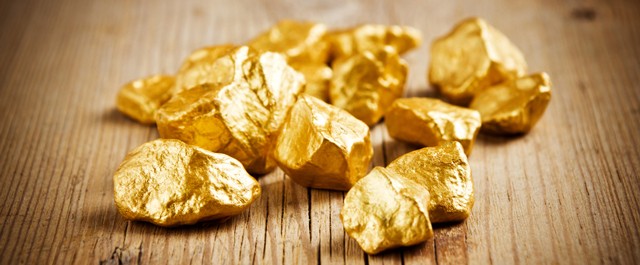
Gold Mining Today
New Zealanders who have a firm grasp on the country’s history will testify that gold played a major part in building the country’s economy into what it is today. The presence of gold attracted all sorts of activity including large numbers of people, investors, and general business happenings. Gold mining actually decreased in the middle of the 20th century as the precious metal’s price was fixed.
However, by the time the 1980s rolled around, the price was permitted to float. As a result, the gold market bounced back. Today, gold generates millions of dollars for New Zealand each year. Contemporary technology allows gold miners to dig just about anywhere for the precious metal. Massive New Zealand gold mines are currently operating in Otago’s Macraes Flat and the Coromandel Peninsula’s Waihi.
The Right Choice for Your Needs
Gold Smart is in the market for nuggets. If you own or someone you know is interested in selling broken gold or gold nuggets, Gold Smart should be your first stop. We will provide an honest valuation process according to weight, carat, spot price, etc. Ask around and you will find that Gold Smart really is the best place to sell. Contact us today for a quote and/or more information.
History of Dental Gold
The use of gold in dental work dates as far back as 2500 BC. Gold teeth back then were bonded with gold thread, perhaps to strengthen a weak tooth. Around 700 BC, the Etruscans fixed replacement teeth in the mouths of their patients with gold thread and gold could also be used to fill cavities. Later, around 1280 AD, Marco Polo reported that the Chinese covered their teeth with thin gold leaf as a form of decoration more for cosmetic purposes rather than dental treatment.
These days the most important industrial use of gold is in electronics and computers. The second most important use of gold is in dentistry. Gold in many ways is the ideal material for dental work. It is durable (dental gold repairs last about 20 years and sometimes more), safe, sturdy, comfortable, highly flexible, and highly resistant to stains or wear. Gold is extremely soft, so it is easy to clean in the mouth. It is also soft to the opposing teeth, like natural teeth.
In ancient times, a glint of gold in the mouth of a person was taken as a sign of prosperity. More recently, materials of “natural look” like porcelain, ceramic, and amalgam implants and crowns are much more widespread than dental gold and are considered aesthetically superior. Although the sensitivity to gold is rare, compared with an allergy to mercury amalgams of silver and nickel alloys, we can still talk about the “gold standard” when it comes to dental gold.
Pure gold used for false teeth has the disadvantage of being relatively soft and therefore wears quickly. Various alloys are used now, with a high percentage of gold, including metals such as copper, platinum, silver, and nickel. The best dental gold alloys contain approximately 76% gold, equivalent to about 18 carats.
The price of gold and other precious metals has increased rapidly over the last couple of decades. As a result, cheaper alternatives to dental gold are being used. Sometimes compounds containing only 30% gold are accepted for use in dental gold. Since the 1980s, palladium was first used in alloys for inlays, crown bridges, and dental gold. Palladium alloys generally contain gold (usually about 2%), as well as silver, zinc, copper, and sometimes iridium.
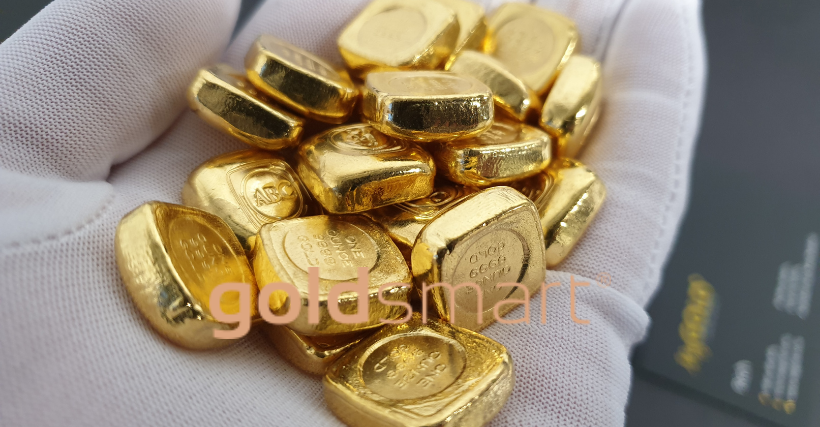
Consumption of Dental Gold in Other Countries
In the United States, dental gold was used less and less as Social Security and health insurance companies impose limits on coverage for working with gold. The consumption of gold for the dental industry decreased from 64 tonnes to 47 tonnes between 1980 and 1988. At the same time, the Japanese and Germans, in particular, continued to favour the gold tooth. For example, in 1982, half the world’s dental gold, about 31.3 metric tons, went to Japan and Germany. By 2006, it was estimated that demand for U.S. dental gold had fallen to about 750,000 ounces, probably caused in part by the lower price of palladium and other metals used for dental work-to-metal porcelain.
The Future of Gold in Dentistry
So what is the future of dental gold? According to many dentists, there is no substitute for the strength, beauty, flexibility, and durability of gold. The results are consistently higher and much longer than the dental work of ceramic, porcelain, or amalgam. Still, at least in the United States, many patients still prefer not to show a “light in your smile” and tend to choose white ceramic implants. Seems that dental gold will continue to maintain its place as an alternative that is reliable and generally available for many dental patients worldwide.

If you own any sort of scrap gold, you should know it has value. Too many people errantly throw out scrap gold, assuming it is worthless due to its age, unsightly appearance, or diminutive size. The truth is that scrap gold really is worth good money. Abide by this mantra when it comes to scrap gold and you will emerge with a fistful of money in the end: “When in doubt, don’t throw it out!”
Gold has Value Regardless of Its Aesthetics
Though your scrap gold might not look pretty, it is certainly worth money to gold buyers in New Zealand. Whether your scrap gold is worn, faded, or extremely small, it will be coveted by gold buyers. So don’t trash those small pieces of old scrap gold just to get them out of your way. Sure, they might not be visually pleasurable yet they can give a serious boost to your personal finances when sold to the appropriate party. Organize all of your scraps of gold into a nice bundle, bring it to Gold Smart and you will head home with a nice wad of cash in your hand.
Why Scrap Gold Should Never be Thrown Away
The world has a finite amount of gold. Aside from its aesthetic appeal, gold has all sorts of utility for an array of industries. It is used in jewellery, spacecraft, medical devices and so much more. In the end, all forms of gold should be thought of as a valuable commodity. It is purchased and sold on a daily basis even when it isn’t nice and shiny in appearance. Though your gold might look ugly, its value will be determined by its weight rather than its aesthetics.
If you aren’t a gold expert, don’t fret. You can sell your gold scraps on your own without the assistance of a commodities aficionado. Just bring your gold to a legitimate gold buyer in New Zealand like Gold Smart and you will be provided with fair value for your items.
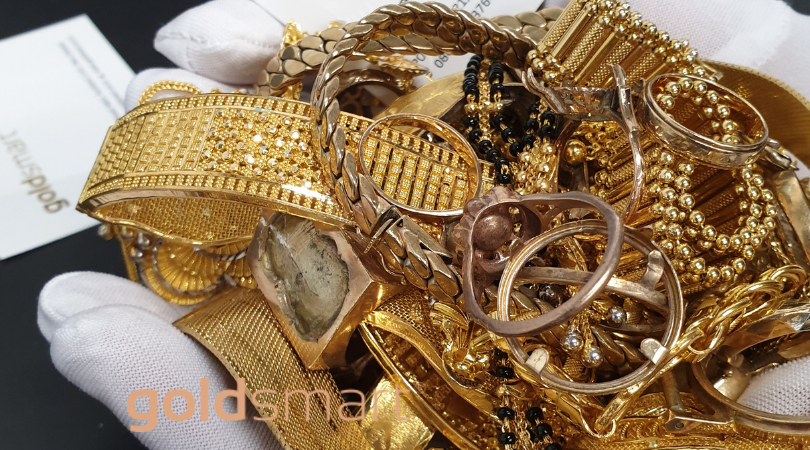
Comparing Scrap Gold to Other Forms of Gold
Though scrap gold has somewhat of an insulting name, it is certainly in-demand. Do not think of scrap gold as low-value metal that few people are interested in. In some instances, scrap gold is worth more than the value of a gram of gold. Just about every type of gold is desired by gold buyers. In general, gold coins and gold jewellery that are in decent shape will hold value that is greater than their weight in gold.
Yet plenty of people will immediately cast judgment on aged and/or worn scrap gold. All too often, such items are deemed worthless and thrown away. Do not make this mistake! If you have a worn or damaged gold coin, gold trinket, or other pieces of gold, do not assume that it is considered scrap gold or something of lesser value. In many instances, such a piece still has considerable value.
In the end, Scrap Gold Will Always Have Value
The moral of the story is to never sell your scrap gold short. Do not repeat the mistakes of so many other scrap gold owners who have tossed their pieces in the trash or let them go for a fraction of their true value. When in doubt, reach out to the precious metals professionals at Gold Smart. We’ll give you an honest assessment of your scrap gold so you can make an informed decision.
